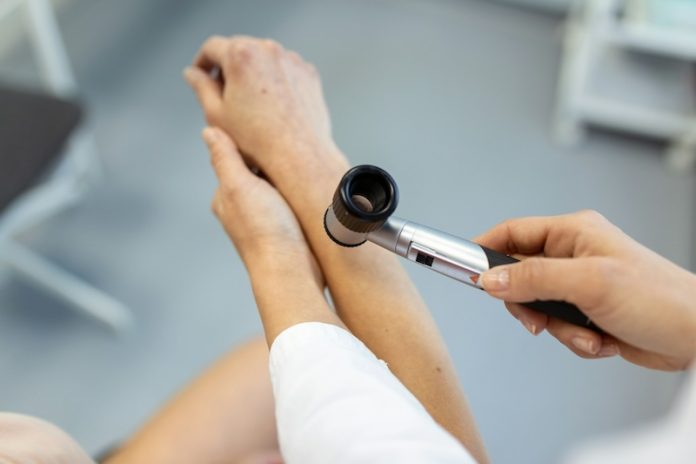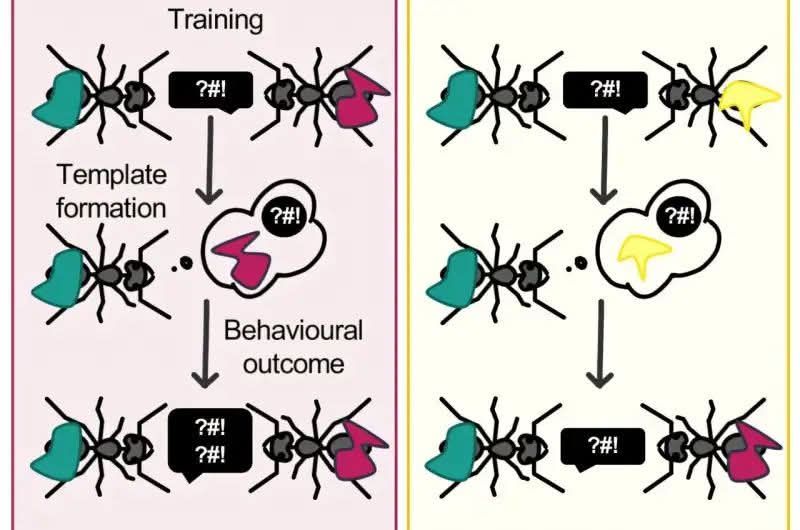

Researchers at Newcastle University in the UK have developed a groundbreaking tool called “DeepMerkel,” powered by artificial intelligence (AI), to improve the treatment of aggressive skin cancers such as Merkel cell carcinoma (MCC).
This innovative web-based system uses machine learning and clinical data to predict treatment-specific outcomes, enabling more personalized and effective care for patients.
The Challenge of Merkel Cell Carcinoma
MCC is a rare but aggressive skin cancer that primarily affects older adults with weakened immune systems. Often diagnosed at advanced stages, it is difficult to treat and is associated with poor survival rates.
Alarmingly, the number of cases has doubled over the past two decades. Given its rarity and complexity, providing precise treatment tailored to individual patients has been a significant challenge for healthcare professionals.
The Development of DeepMerkel
DeepMerkel combines machine learning with clinical expertise to analyze patient-specific and tumor-specific data. By processing information from nearly 11,000 patients across two countries, the system identifies patterns and trends in MCC progression and outcomes that were previously undetectable.
Using this data, DeepMerkel generates personalized predictions about the course of the disease and suggests optimal treatment strategies.
Dr. Tom Andrew, a plastic surgeon and Ph.D. student at Newcastle University, explained how AI is enabling better outcomes:
“DeepMerkel helps us understand subtle patterns in data, allowing us to predict the progression and severity of MCC for each patient. This means we can tailor treatments to provide the most effective management.”
The system uses a combination of advanced machine learning techniques, such as deep learning feature selection and a modified XGBoost framework.
This approach not only enhances accuracy but also reveals new insights into mortality risk factors for MCC, as detailed in two publications in npj Digital Medicine and the Journal of the American Academy of Dermatology.
Improved Patient Care
One of the key advantages of DeepMerkel is its ability to identify high-risk patients at earlier stages of MCC. This allows doctors to make better-informed decisions about when to use aggressive treatments or implement intensive monitoring.
Such precision is especially critical for MCC patients, who often face complex, life-altering choices about their care.
Dr. Aidan Rose, a Senior Clinical Lecturer and Consultant Plastic Surgeon, emphasized the significance of these developments:
“Accurately predicting patient outcomes is vital for guiding clinical decisions, particularly in treating aggressive cancers in complex patient groups. DeepMerkel offers personalized survival predictions and helps medical teams select the best treatment for each patient.”
The Future of DeepMerkel and AI in Cancer Care
DeepMerkel is not only transforming care for MCC but also paving the way for broader applications. The team plans to integrate the tool into routine clinical practice and expand its use to other types of aggressive tumors.
Further investment will allow the system to evolve, presenting treatment options and pathways to clinicians, ultimately improving decision-making.
The goal is to ensure patients are at the center of the process. By providing them and their medical teams with detailed, personalized information, DeepMerkel empowers individuals to make informed decisions about their treatment options.
Transforming Clinical Decision-Making
The development of DeepMerkel highlights the transformative potential of AI in healthcare. By combining cutting-edge technology with clinical expertise, this tool represents a significant step forward in precision medicine.
It offers hope for patients with MCC and sets the stage for similar innovations to improve outcomes for other aggressive cancers. With its ability to provide early, accurate predictions and personalized treatment strategies, DeepMerkel is poised to become an essential tool in the fight against cancer.
If you care about cancer risk, please read studies that exercise may stop cancer in its tracks, and vitamin D can cut cancer death risk.
For more information about cancer, please see recent studies that yogurt and high-fiber diet may cut lung cancer risk, and results showing that new cancer treatment may reawaken the immune system.
The research findings can be found in npj Digital Medicine.
Copyright © 2025 Knowridge Science Report. All rights reserved.









Leave a Comment